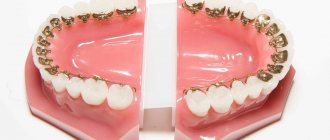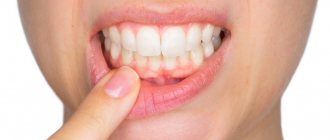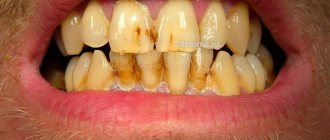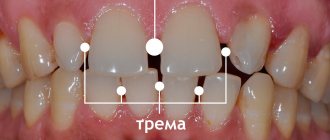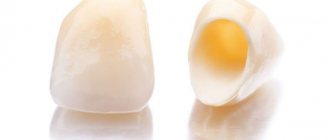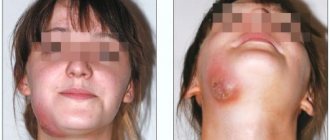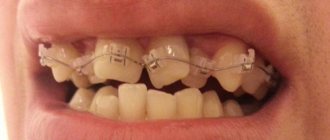Where does the bitter taste come from?
An unpleasant taste may be present constantly or appear periodically. This symptom is associated with the release of bile into the esophagus. Patients often notice a bitter taste in the mouth in the morning, especially when eating fatty foods the day before and after sleeping on the left side.
Bile is a liver secretion that is involved in digestion. The fluid flows through the ducts into the gallbladder and from there into the duodenum. Normally, bile does not flow into the esophagus, and the person feels well.
After eating certain types of food, the liver may react by producing more secretions. The volume of bile in the intestines increases, and a small part enters the esophagus, causing a bitter taste in the mouth. The same reaction occurs when using certain medications or when exposed to other factors. In any case, an unpleasant taste is a reason to consult a doctor. Only by identifying the cause of bitterness in the mouth can a person’s well-being be improved.
Why does a sour taste appear?
The digestive system has a complex structure. The presence of any aggressive factors and internal changes in various organs negatively affects its functioning, as evidenced by the appearance of a sour taste. The main causative factors for the appearance of an unpleasant symptom:
- Gastroesophageal reflux disease (GERD). When food enters the stomach, it does not return to the esophagus thanks to a special valve. It does not work properly in patients with GERD. Because of this, food enters the esophagus, which explains why a sour or bitter taste appears.
- Insufficient oral hygiene and dental diseases: caries, gingivitis, periodontitis, stomatitis and other infections caused by fungi.
- Taking certain medications. There are drugs that, in addition to their main action, affect taste buds in the brain or tongue. This includes antibiotics, drugs prescribed as part of chemotherapy for the treatment of neurological, cardiovascular diseases, and certain psychological conditions (depression, anxiety, insomnia).
- Bad habits. An unpleasant aftertaste may be caused by smoking and chewing tobacco for a long time.
- Dry mouth. Insufficient saliva production is accompanied by incorrect perception of taste. The disorder worsens with anxiety or stress.
- Lack of zinc in the body. It is observed when there is insufficient intake of this element into the body, its poor absorption, for example, when taking certain medications.
- Pregnancy and other conditions of the female body. Hormonal changes in expectant mothers cause a sour taste. This also happens due to the pressure of the uterus on the stomach. At the same time, heartburn appears. An undesirable symptom is also observed in women during menopause, which is explained by changes in hormone levels. By the way, hormonal disorders in men are also sometimes accompanied by the appearance of a sour taste.
- Radiation therapy, which affects the head and neck area. This can damage saliva tissue, causing an unpleasant taste.
- A number of diseases (gastric ulcer, disorders of the liver and its ducts, gastroduodenitis, pancreatitis, diaphragmatic hernia, chronic anemia, helminthic infestation).
There are many more reasons that provoke an unpleasant symptom. These are neurological disorders, operations or head injuries, poisoning with heavy metals and highly toxic substances.
Possible causes of bitterness in the mouth
Diseases of the biliary tract
Bile transport in the body is disrupted in chronic cholecystitis, cholelithiasis, biliary dyskinesia, hepatitis, and cirrhosis. Spasm or blockage of the duct leads to stagnation of secretions.
Important!
Bitterness in the mouth after eating can occur even after removal of the gallbladder. The reason is that bile is constantly produced in the body, and if a person does not adhere to a diet after surgery, some of the liquid may be thrown into the esophagus. You won’t be able to get rid of the bitter taste without following a diet.
Digestive system diseases
Diseases of the liver, esophagus, stomach, and intestines are accompanied not only by constant bitterness in the mouth, but also by other characteristic symptoms:
- nausea, vomiting;
- severe heartburn;
- belching;
- constipation or diarrhea;
- pain in the epigastric region.
The symptom of bitterness in the mouth can accompany giardiasis, gastritis, duodenitis, peptic ulcer, etc.
Other pathologies
Various oral conditions can cause a bitter taste:
- diseases of the tongue and gums: gingivitis, stomatitis, glossitis;
- insufficient oral hygiene;
- incorrectly installed fillings and dentures.
A bitter taste in the mouth may appear when taking certain anti-inflammatory, antihypertensive, anticonvulsant, hypnotics, and antibiotics. The same symptom is accompanied by poisoning with copper, mercury, lead, and the development of cancer pathologies. Severe bitterness in the mouth can be a reaction to taking herbal remedies: decoctions and infusions of herbs, nuts, sea buckthorn oil.
Treatment and preventive measures
Since a sour taste in the mouth is only a symptom, after identifying the causative disease, the doctor will prescribe appropriate treatment and tell you what to do to improve its effectiveness. It is important to pay due attention to the quality of oral hygiene, if necessary, carry out its sanitation, undergo professional teeth cleaning, and improve gum health.
How to remove the sour taste caused by gastrointestinal diseases? In addition to drug therapy prescribed by your doctor, you should follow these recommendations:
- do not overeat at night;
- Take warm food in small portions 5-6 times a day;
- drink enough clean water;
- limit consumption or completely avoid smoked, salty, fatty foods and alcohol, which have a bad effect on the digestion process and liver function;
- consume less red meat, strong coffee and tea, carbonated drinks and other foods with sour or bitter taste;
- introduce plant foods, cereals, eggs, dairy products, fish into the diet;
- to refuse from bad habits.
It is important to analyze the drugs that are used. A diet is also recommended for pregnant women. Expectant mothers should not take a horizontal position or engage in active physical exercise after eating. Hiking in the fresh air is shown.
What to do if you have a bitter taste in your mouth
The first thing you need to do is make an appointment with a gastroenterologist as soon as possible. The doctor will conduct a diagnosis and find out why bitterness and dry mouth occur and how to get rid of these sensations.
At the first consultation, the doctor interviews the patient. It is necessary to establish the period of maximum manifestation of symptoms. For example, increased bitterness in the mouth after eating may indicate overeating or disease of the bile ducts. If an alarming sign appears after taking medications, then most likely there is a violation of the intestinal microflora or a negative reaction of the liver. Bitterness in the mouth can occur in the morning or evening, after drinking alcohol, physical activity, and be accompanied by dry mucous membranes. All manifestations must be reported to your doctor.
How is diagnostics carried out?
Only an accurate diagnosis is the key to successful treatment. For this purpose, you may have to visit several specialists: a therapist, a dentist, a gastroenterologist, an endocrinologist, and a gynecologist. The child must first be shown to a pediatrician.
Each of the listed reasons has its own method of diagnosis and elimination. In addition to collecting anamnesis and visual examination of the mouth, neck and head, doctors may prescribe the following studies:
- blood and urine tests;
- Ultrasound;
- FGDS;
- X-ray with HF;
- CT or MRI.
Various tests are also carried out to evaluate taste sensations.
Expert advice
When there is bitterness in the mouth, self-medication is the most dangerous. It is believed that the main cause of the symptom is liver disease. Patients begin to make compresses on their own and drink herbal decoctions. Instead of relief, complications occur. The patient is sent to the hospital with severe pain, intoxication, peritonitis, etc. These are the consequences of trying to make an independent diagnosis. It turns out that the cause of the bitterness in the mouth was gallstones. A person independently drinks choleretic decoctions, stimulates the migration of stones, which safely get stuck in the duct and cause an acute attack. Instead of having the crystals crushed under medical supervision, the patient goes straight to the operating table.
Dzhgarkava Tea Gochaevna
Therapist-cardiologist Experience 5 years
There are other, no less dangerous cases. To get rid of bitterness in your mouth, you need to go to the doctor and cure the detected diseases. This is the only right decision.
During pregnancy
Bitterness on the tongue and lips appears during pregnancy. This leads to inconvenience for women. Often the symptom appears in the first trimesters of pregnancy, and sometimes persists until childbirth. It may occur:
- from hormonal changes;
- slow digestion and disruption of intestinal activity;
- fetal growth.
It is almost impossible to eliminate bitterness before childbirth. You can undergo an examination with a gastroenterologist, monitor your diet and take medications.
Causes of GERD
Reflux (reflux of stomach contents into the esophagus) can occur for the following reasons:
decreased tone of the lower esophageal sphincter.
Sphincter weakness may result from:- consumption of caffeinated drinks, chocolate;
- smoking;
- alcohol abuse;
- hormonal changes during pregnancy;
taking certain medications;
- flatulence (which, in turn, can be a consequence of poor nutrition, gastrointestinal diseases, digestive disorders - dyspepsia);
pregnancy;
- hiatal hernia.
For the development of gastroesophageal reflux disease, not only the reflux itself is important, but also some other factors that contribute to the aggravation of the situation, for example:
- depressed state of the esophageal mucosa, in which it is unable to resist damage;
- impaired ability of the esophagus to cleanse itself. Normally, the esophagus should quickly be cleared of the stomach contents that have entered it - due to gravity and peristalsis, and the acidity of the environment should be eliminated by sodium bicarbonate, which is part of the saliva.
Factors that provoke reflux are:
- stress;
- eating too much food (overeating);
- eating foods that cause increased gas formation and other digestive disorders;
- physical activity after meals.
Drugs
It will not be possible to eliminate bitterness without medication if the cause of plaque is due to diseases of the internal organs. The selection of medications is determined by the type of illness. Treatment can be performed after diagnosis:
- For stomach diseases, Mezim, Festal, Motilium, Almagel, Omeprazole are prescribed.
- In case of disturbances in liver function, Allochol, Essentiale Forte, Flamin, and Ursofalk are prescribed.
- For problems with the functioning of the gallbladder, the drugs “Holagol”, “Karsil”, “Holosas” are effective.
Only a doctor can prescribe any medications. You should not do this yourself, otherwise negative consequences are likely. You should also read the instructions before treatment.
Metal
The reason may be unhealthy teeth or gums.
A metallic taste in the mouth can be caused by metal crowns or fragments of dentures. In this case, you should discuss with your dentist the issue of replacing them. When making a diagnosis, exclude:
- diseases of the periodontium and maxillofacial system with obvious signs of a purulent process;
- bleeding from the gums;
- poisoning with salts of heavy metals - such taste sensations are caused by mercury, zinc, arsenic, copper;
- diabetes mellitus in the stage of decompensation with a slight change in blood sugar levels;
- Iron-deficiency anemia;
- chronic bleeding due to stomach ulcers;
- hormonal disorders;
- taking certain medications. The appearance of such sensations is facilitated by drugs from the NSAID group and anticonvulsants. When the drug is discontinued, the metallic taste disappears on its own.
If the cause is not identified
In this case it is necessary:
- Eat small meals often. This is especially effective for pregnant women, in whom bitterness is associated with fetal pressure on the digestive organs.
- Quit or limit smoking.
- Take probiotic medications to normalize microflora.
- Cleanse the body with sorbents.
- Follow a diet that excludes fatty and heavy foods.
- Normalize sleep and rest patterns.
Bitterness should not be treated on its own, as it may be a symptom of some illness. Each disease requires individual therapy.
Clinical symptoms
Impaired sense of taste is associated with a large number of diseases. Depending on the type of pathological process occurring, the patient may experience many associated symptoms:
- state of lethargy and weakness;
- a grayish or whitish coating forms on the tongue;
- pain and discomfort affect the area of the right hypochondrium or the iliac region;
- frequent belching with the smell of consumed food, air;
- feeling of stale breath, feeling of heaviness on the side;
- change in the standard color of the skin and whites of the eyes to yellowish shades;
- slowdown of metabolic processes with hair loss;
- constipation, diarrhea and other intestinal disorders.
If the source of the unpleasant taste is the formation of stones in the cavity of the gallbladder, then the clinical picture is complemented by painful sensations due to their movement.
Diet
The diet should include soft, well-chopped food. Gentle cooking methods - steam, bake, boil, stew. Include puree soups and cream soup in your diet. Bread can be consumed dried, yesterday's bread made from first and second grade flour. Meat – chicken, turkey, lean parts of beef, lean fish. Eggs should be in the form of omelettes, steamed in the oven. Food should be warm, not cold or hot. If there is a symptom of bitterness in the mouth, it is necessary to exclude sausages, smoked foods, fatty, fried, canned, and pickled foods from the diet. It is completely necessary to exclude alcohol, spicy foods, coffee, chocolate, carbonated drinks, pork, and some legumes.

